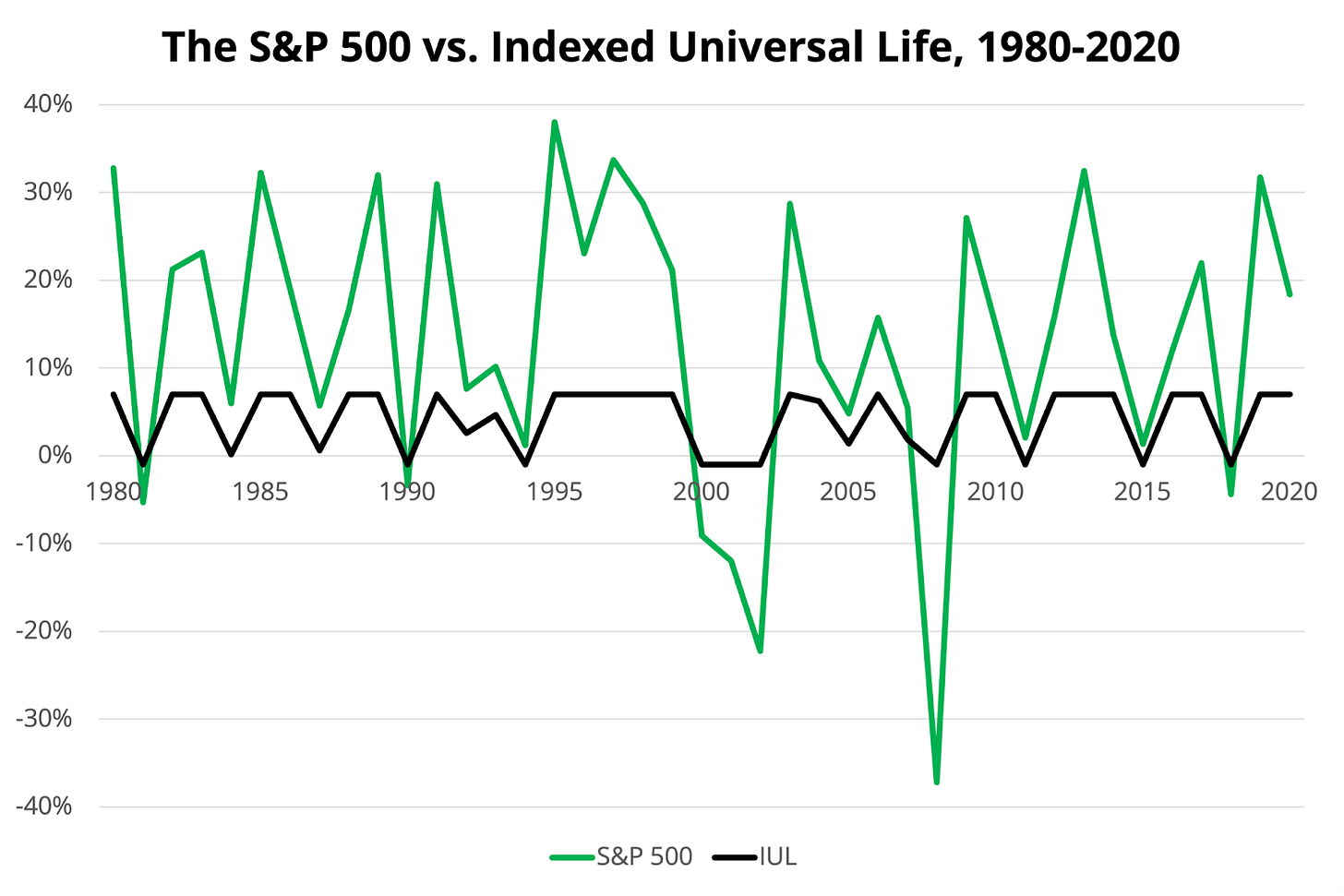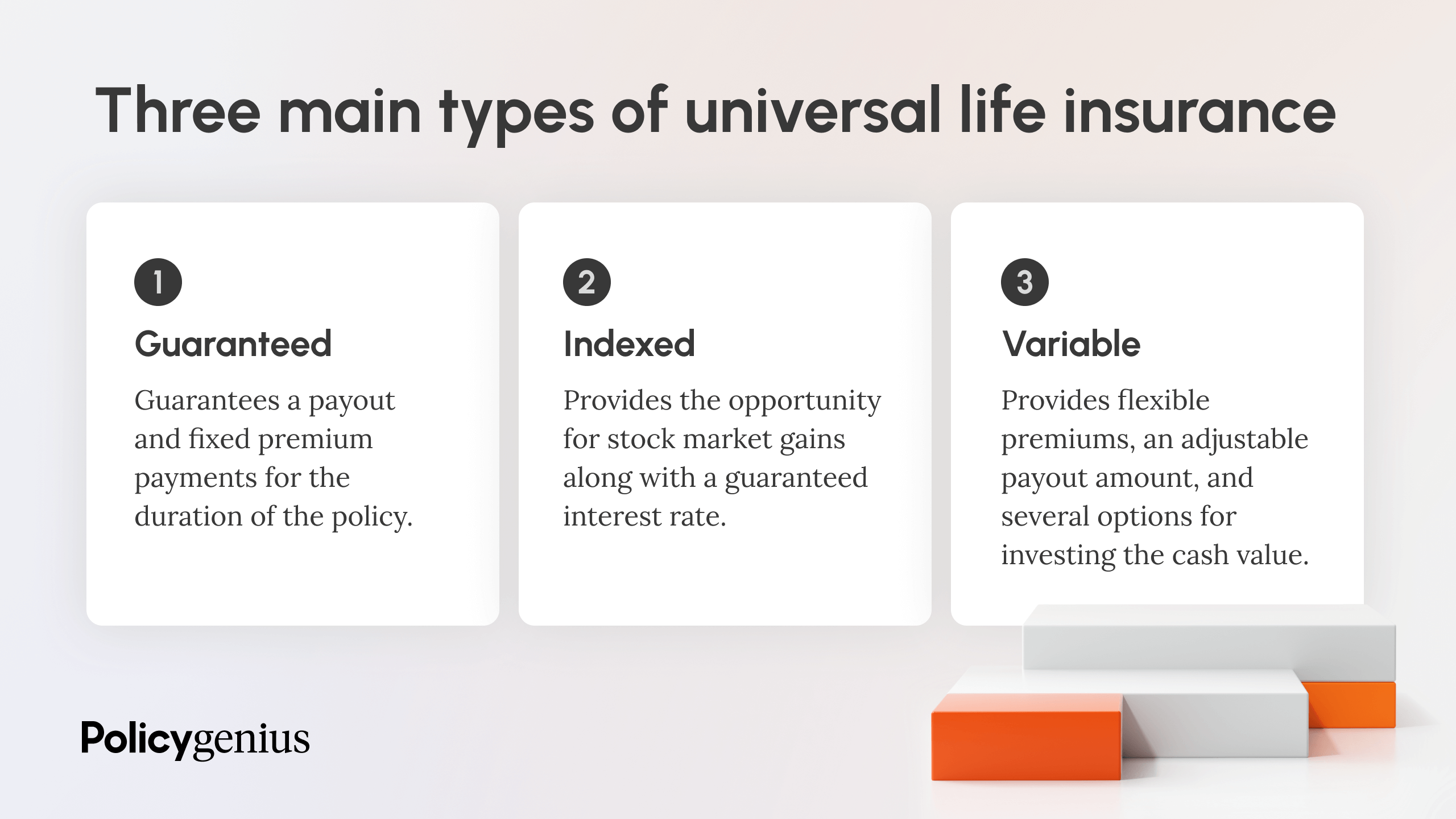All Categories
Featured
Table of Contents
1), typically in an attempt to defeat their classification standards. This is a straw guy debate, and one IUL people love to make. Do they contrast the IUL to something like the Vanguard Total Stock Market Fund Admiral Show to no load, an expenditure ratio (EMERGENCY ROOM) of 5 basis factors, a turnover ratio of 4.3%, and a remarkable tax-efficient record of circulations? No, they compare it to some awful proactively managed fund with an 8% lots, a 2% ER, an 80% turn over ratio, and a dreadful document of short-term capital gain circulations.
Common funds usually make yearly taxed distributions to fund owners, even when the worth of their fund has actually decreased in value. Shared funds not just require revenue coverage (and the resulting annual taxes) when the common fund is rising in worth, yet can likewise impose earnings taxes in a year when the fund has actually decreased in worth.
You can tax-manage the fund, harvesting losses and gains in order to minimize taxed distributions to the capitalists, but that isn't somehow going to change the reported return of the fund. The possession of mutual funds may call for the shared fund owner to pay projected tax obligations (universal life insurance ratings).

IULs are easy to position to ensure that, at the owner's fatality, the recipient is not subject to either revenue or inheritance tax. The exact same tax reduction methods do not function virtually also with mutual funds. There are numerous, commonly pricey, tax obligation traps connected with the timed acquiring and marketing of common fund shares, catches that do not put on indexed life insurance policy.
Possibilities aren't extremely high that you're going to be subject to the AMT because of your shared fund distributions if you aren't without them. The rest of this one is half-truths at finest. While it is real that there is no earnings tax obligation due to your successors when they inherit the proceeds of your IUL policy, it is also real that there is no earnings tax obligation due to your successors when they inherit a mutual fund in a taxable account from you.
Allianz Indexed Universal Life
The government estate tax exception limitation is over $10 Million for a pair, and growing each year with inflation. It's a non-issue for the large majority of physicians, a lot less the rest of America. There are better methods to prevent inheritance tax concerns than getting investments with low returns. Mutual funds might cause revenue taxation of Social Safety advantages.

The growth within the IUL is tax-deferred and may be taken as free of tax revenue using car loans. The plan owner (vs. the mutual fund supervisor) is in control of his/her reportable earnings, hence enabling them to decrease or even eliminate the taxation of their Social Security advantages. This one is excellent.
Below's an additional minimal issue. It holds true if you get a shared fund for say $10 per share prior to the distribution day, and it disperses a $0.50 circulation, you are then mosting likely to owe tax obligations (most likely 7-10 cents per share) although that you have not yet had any gains.
But in the long run, it's truly about the after-tax return, not exactly how much you pay in taxes. You are going to pay more in taxes by using a taxable account than if you get life insurance policy. However you're also possibly going to have more money after paying those taxes. The record-keeping requirements for owning common funds are substantially much more complex.
With an IUL, one's documents are maintained by the insurance coverage firm, duplicates of yearly declarations are sent by mail to the proprietor, and distributions (if any) are completed and reported at year end. This one is likewise kind of silly. Naturally you ought to keep your tax obligation documents in situation of an audit.
Adjustable Premium Life Insurance
Rarely a reason to get life insurance policy. Shared funds are frequently component of a decedent's probated estate.
On top of that, they go through the delays and expenditures of probate. The proceeds of the IUL plan, on the other hand, is always a non-probate distribution that passes beyond probate directly to one's called recipients, and is consequently not subject to one's posthumous lenders, unwanted public disclosure, or similar hold-ups and costs.
Medicaid incompetency and life time income. An IUL can give their owners with a stream of revenue for their whole life time, regardless of exactly how lengthy they live.

This is advantageous when arranging one's events, and transforming assets to income prior to a nursing home arrest. Mutual funds can not be converted in a comparable way, and are nearly always considered countable Medicaid assets. This is one more dumb one advocating that bad people (you know, the ones who require Medicaid, a federal government program for the poor, to pay for their nursing home) should use IUL rather of shared funds.
Universal Life Policy Pros Cons
And life insurance coverage looks terrible when contrasted fairly versus a pension. Second, people who have money to buy IUL over and past their pension are going to need to be terrible at managing cash in order to ever get approved for Medicaid to spend for their retirement home costs.
Chronic and terminal health problem motorcyclist. All plans will allow an owner's easy accessibility to money from their policy, frequently forgoing any kind of abandonment charges when such individuals endure a major health problem, require at-home treatment, or come to be constrained to an assisted living home. Shared funds do not offer a comparable waiver when contingent deferred sales costs still use to a shared fund account whose proprietor needs to sell some shares to money the costs of such a keep.
Disadvantages Of Indexed Universal Life Insurance
Yet you get to pay even more for that advantage (biker) with an insurance plan. What a large amount! Indexed global life insurance policy offers death advantages to the recipients of the IUL proprietors, and neither the proprietor neither the beneficiary can ever before lose cash due to a down market. Mutual funds give no such guarantees or fatality advantages of any kind of kind.
Now, ask on your own, do you in fact require or want a death benefit? I certainly don't require one after I reach financial freedom. Do I desire one? I intend if it were economical enough. Naturally, it isn't inexpensive. On standard, a buyer of life insurance pays for truth cost of the life insurance policy advantage, plus the expenses of the plan, plus the earnings of the insurer.
What Is Guaranteed Universal Life
I'm not completely certain why Mr. Morais included the entire "you can't shed money" once again right here as it was covered fairly well in # 1. He simply wished to repeat the finest selling factor for these things I intend. Again, you do not shed nominal bucks, however you can lose real dollars, along with face severe opportunity price due to low returns.

An indexed global life insurance policy policy proprietor might trade their policy for a totally various policy without activating revenue tax obligations. A shared fund owner can stagnate funds from one shared fund firm to one more without selling his shares at the former (therefore triggering a taxable occasion), and buying brand-new shares at the last, commonly based on sales costs at both.
While it is true that you can exchange one insurance plan for an additional, the factor that people do this is that the initial one is such a terrible policy that also after buying a new one and experiencing the very early, negative return years, you'll still appear ahead. If they were offered the ideal plan the very first time, they shouldn't have any type of desire to ever exchange it and undergo the early, negative return years again.
Latest Posts
Iul Benefits
The Difference Between Whole Life And Universal Life Insurance
Cap Life Insurance